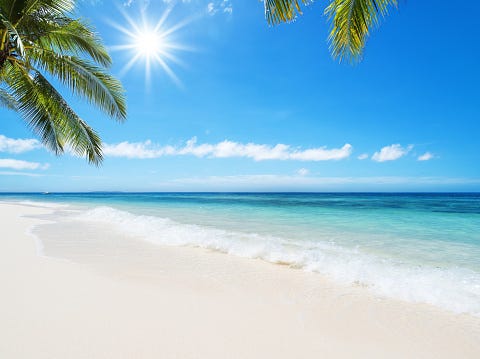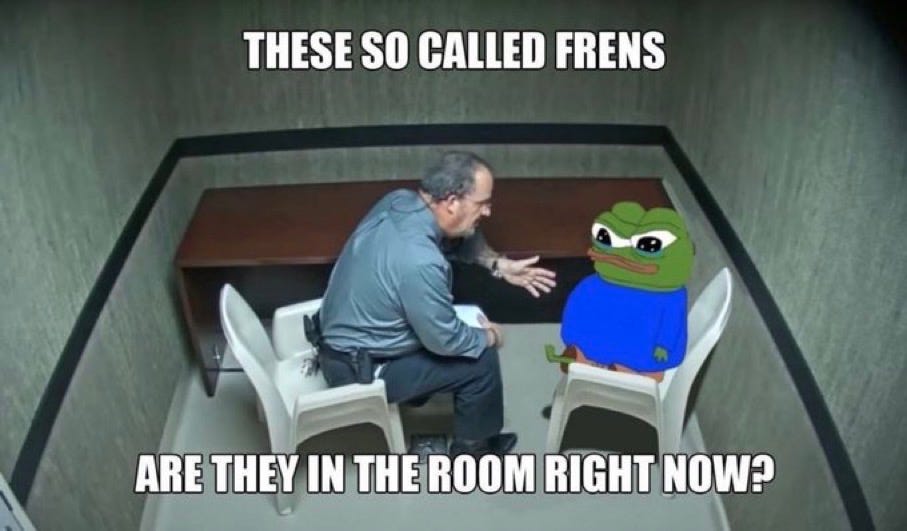I’m generally an optimist. However, it’s hard to ignore what’s happening in the world today and every week here in the US, there seems to be a “new thing” to worry about. Let’s review: COVID-19, Inflation, Stock Market Crash, Russia/Ukraine War, Monkeypox, Abortion Rights, Gun Control, Food Shortages and the list goes on. The biggest issues are incredibly divisive and get unlimited attention from the media, adding fuel to the fire of an already polarized society. I can hardly wait for the 2024 Presidential election.
Over the past couple of years we have seen massive social unrest, government seizure of property (Canadian truckers, Afghanistan and Russian Central Bank reserves) and diminished personal freedom. For people living in western democracies (i.e., Europe, US, Canada, New Zealand, Australia, etc.) in particular, the trend of declining personal freedom has been steady and seems to be a key element of the crisis playbook. We don’t seem to be lacking for crises. When looking at a country beset with hyperinflation and collapsing society such as Sri Lanka, it’s tempting to think that what’s happening “there” can’t happen “here.” What’s clear to me is that we are living through a tumultuous time in world history, the trends are clear if you are paying attention and those without a plan will have simply have less options. I think it’s very important to protect your family from this uncertainty in any way you can and it’s better to have a plan than no plan.
After reading the book The Sovereign Individual by Davidson/Rees-Mogg, I began to realize that modern technology (internet, Bitcoin) makes centralized nation-states less relevant and decentralized global communities more relevant. For example, the Bitcoin community that I interact with on Twitter is international, shares the core ethos of Bitcoin (hard work, freedom, liberty, sound money, etc.) and can interact, educate and share ideas around the clock.
You can now “work from home” virtually anywhere in the world for many companies and other than some legal formalities, nothing is really stopping you from living where you are treated best. So just as I have always advocated for a diversified investment portfolio to manage risk, in the same way I’m thinking it’s important to diversify your life internationally to manage risks such as limitations on your freedom, risks to your personal safety and government seizure of your hard-earned assets (whether overtly or covertly through taxation and inflation). It’s basically not putting all your eggs in one sovereign basket. So what does becoming a Sovereign Individual entail?
Have a Plan. The first step in my mind is having a plan. I’d recommend working with a reputable expert to help craft a plan that is tailored to your individual situation. I think a holistic approach is important and needs to take into consideration your needs and priorities, including personal freedom, taxes, lifestyle, etc. One advantage of living in a different country is that in many cases you can pay less taxes and enjoy more personal freedom. Indeed, many folks have retired and moved out of the US to Mexico, Central America or Puerto Rico with a lower cost of living and a laid-back lifestyle. It’s also important to have a “Plan B” that can be implemented rapidly, if for some reason conditions deteriorate, your situation becomes untenable and you need to leave quickly. It’s also important to have a “Plan A” that is your longer term plan for where you want to live with a defined timeframe for executing.
Get a Second Passport. The next step is to get a second passport. There are many ways to do this and many people are surprised that you can still do this in most countries without having to renounce your citizenship. By the way, if you don’t have a passport for your own country, you should probably get one, otherwise there’s no way for you to leave the country legally (assuming there are no other limitations placed on you as they are in some countries which require COVID vaccine for travel, etc. which might be another reason for second citizenship). There are many ways to obtain a second citizenship and not all are costly. You can apply for citizenship by descent if you have a parent or grandparent from another country and you may have to live there for some time to establish citizenship. Some countries are better passports to hold than others. For example, a Russian passport isn’t great in today’s world, but a German (EU) passport would be very good and would give you plenty of global travel options, although you might not want to live there due to the relatively high taxes. You can also get citizenship by investment (more expensive) without having to move. For example, if you invest in real estate in Turkey that can allow you to obtain citizenship there (about $250K US today). There are other countries where you can make a bank deposit or buy a government bond to get citizenship, but those investment amounts could be significantly higher. There are also places where you can get citizenship for a “donation” and includes several Caribbean countries ($100K - $150K - here’s an excellent summary of options by Nomad Capitalist) . This can perhaps be the fastest and most cost-efficient method to obtain a second citizenship without having to move, but each country is a little different and does require some research to see what works best for your own situation. Getting help implementing your plan from a reputable expert is definitely worth it, since there are a lot of hoops to jump through in the application process and you want to make sure it’s all done legally and properly. A second passport should be viewed like an insurance policy and will allow you to leave your country to travel and live if conditions warrant or if you simply want a better lifestyle. Depending on how much you make and assuming you ultimately move to a tax-friendly country, the tax savings alone could more than cover the fees you pay to get your second citizenship.
Move Some Assets Overseas. After getting citizenship, a good idea is to establish one or more bank / investment accounts in other countries. While there may be reporting requirements for your country of residence (for sure in the US) and this can be a bit of a hassle, it’s worth it to have some of your cash and investments physically diversified internationally. In many cases you can get higher interest rates on your cash deposits, have access to a greater array of global stock and other investments (including Bitcoin physical ETF’s which are currently not approved in the US, for example). You can also invest in real estate in other countries and in many cases prices are lower and yields on investment properties generally higher, especially compared to the US or Canada. You could buy a second home in a country where you hold second citizenship and have that as a place to go for vacation or if needed in an emergency. If you own self-custodied Bitcoin, since it’s decentralized there’s not much to do except bring your hardware wallet or memorize your private key and jump on a plane, although you may still have to pay capital gains taxes if you sell any coins before establishing your new residence in a tax-friendly (and most importantly Bitcoin friendly) country. Again, it’s important to work with an expert to make sure everything is done legally and that you find the best places to put your money and you are properly setup to file your taxes. You may eventually find that there are countries where you want to hold your money, some where you want to invest and others where you want to live.
Not financial or legal advice, for entertainment only, do your own homework. I hope you find this post useful as you chart your personal financial course and Build a Financial Fortress in 2022. To see all my books on investing and leadership, click here.
Always remember: freedom, health and positivity!
Please also check out my Building a Financial Fortress Podcast on YouTube here and on all your favorite streaming platforms.






